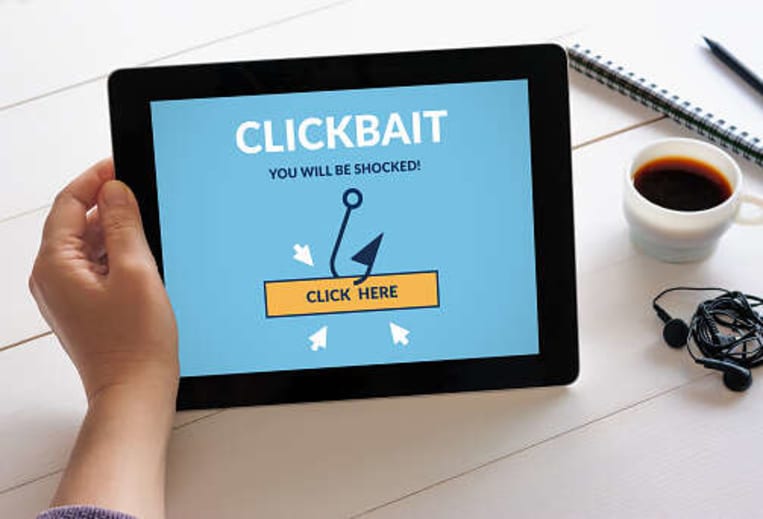
Watch out for clickbait scams

The deaths of celebrities, athletes, and other beloved international figures can lead to mourning and heartache. Unfortunately, scammers will try to exploit the public's eagerness for information and memorabilia with clickbait scams.
Clickbait is a sensationalized post about trending news items highlighting exclusive, breaking, or urgent news, inciting people to, quite literally, click on it. The description uses words like "amaze," "shocking" or "never seen before footage."
You may see clickbait links on social media platforms as standalone posts, as direct messages, or even in the comment sections of posts. Once clicked, the reader is taken to a site that may allow cyber criminals to hijack your account or steal personal information. To avoid scams like these:
- Don't take the bait. Stay away from promotions of "exclusive," "shocking" or "sensational" footage. Many times, clickbait will also wrongly claim to have footage or information regarding a recent tragedy or the recent death of a celebrity or public figure. If it sounds too outlandish to be true, it is probably a scam.
- Hover over a link to see its true destination. Before you click, mouse over the link to see where it will take you. Don't click on links leading to unfamiliar websites.
- Don't trust your "friends" online. It might not actually be your friends who are "liking" or sharing scam links to photos and videos. Their account may have been hacked, and scammers could be using another tactic called "clickjacking." Clickjacking is a technique that scammers use to trick you into clicking on social media links that you would not usually click on. Be wary of direct messages from your online friends that seem out of the ordinary or pressure you to click on links or download attachments.
Clickbait scams can also be emailed to you. Spear phishing emails are directed toward an individual, organization, or business with a catchy headline. The sender claims to be from a reputable news organization capitalizing on trending news with an exclusive video, image, or document they want to share with you. There is typically a link that will lead the user to a malicious website if they click on it. To avoid scams like these:
- Look at the sender's email address before clicking on anything in the email. If it's from someone you're not familiar with, or if the email address is too generic or just doesn’t look legitimate, delete it.
- Don't click any links in an email from an anonymous or unfamiliar sender unless you are positive that the links go to a reputable source. Hover over the link to see where it will take you. Keep the same advice in mind for attachments. Don’t download any documents or attachments unless you are positive that they are legitimate and came from a sender that you know and trust. When in doubt, don’t click or open anything suspicious.
- Read more tips from BBB on phishing scams.
Learn how to deal with spam on Facebook here.
Report spam and fake accounts on X here.
Read more tips from BBB on social media scams, how scammers use social media platforms, and how to spot a fake social media account.
For more information on scams, check out the BBB Scams HQ.
Report scams (whether or not you've lost money) to BBB Scam Tracker.
Still Need Assistance?
Contact Your Local BBB
Your local Better Business Bureau can assist you with finding businesses you can trust. Start With Trust®.
Additional Resources
Let BBB help you resolve problems with a business
Research and report on scams and fraud using BBB Scam Tracker
Learn more about the value of BBB Accreditation